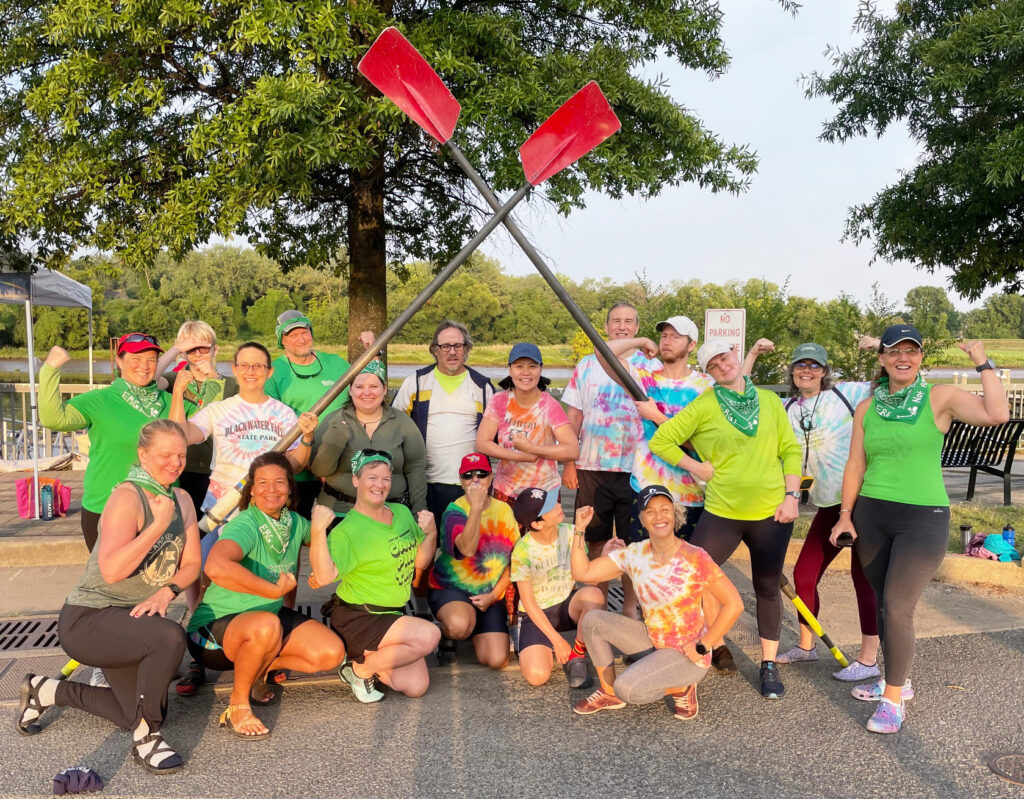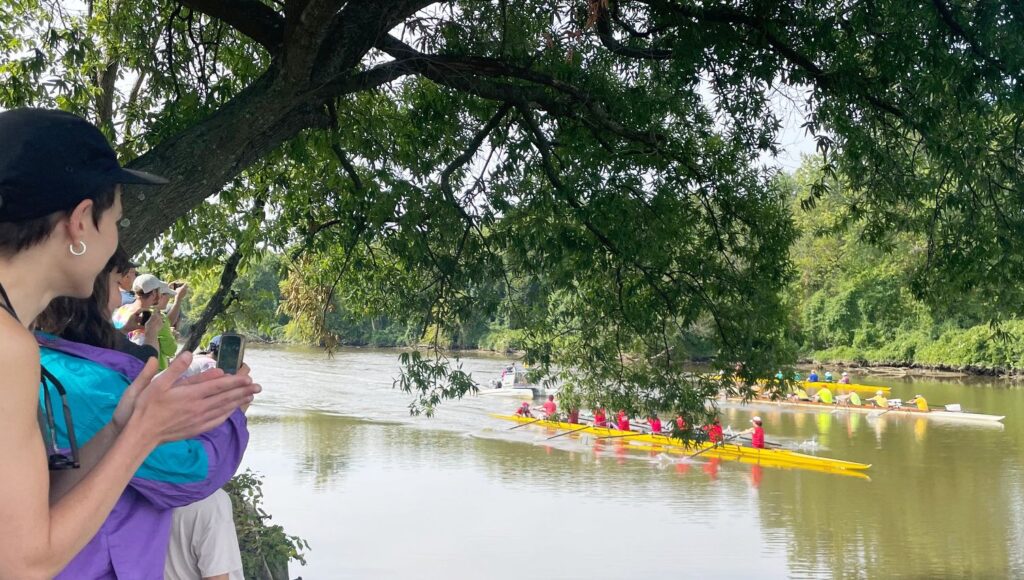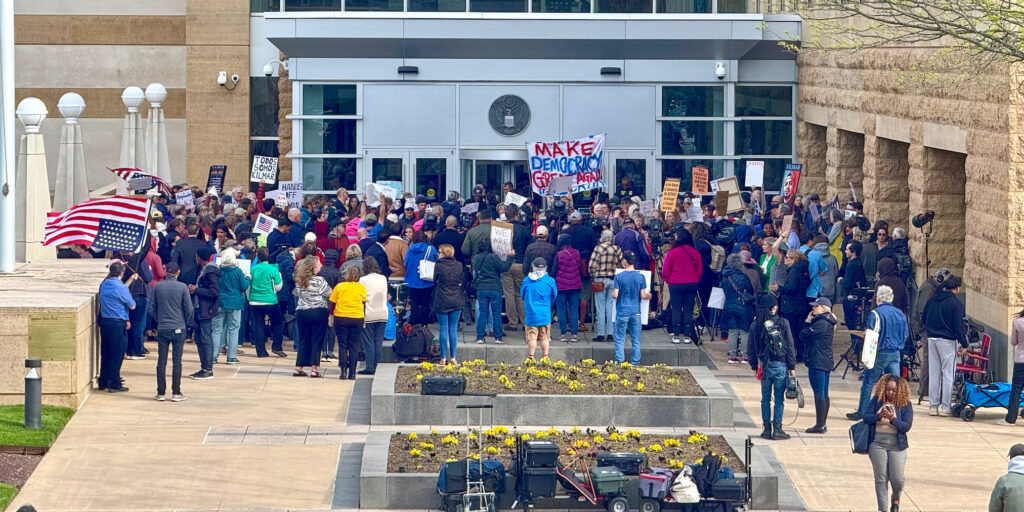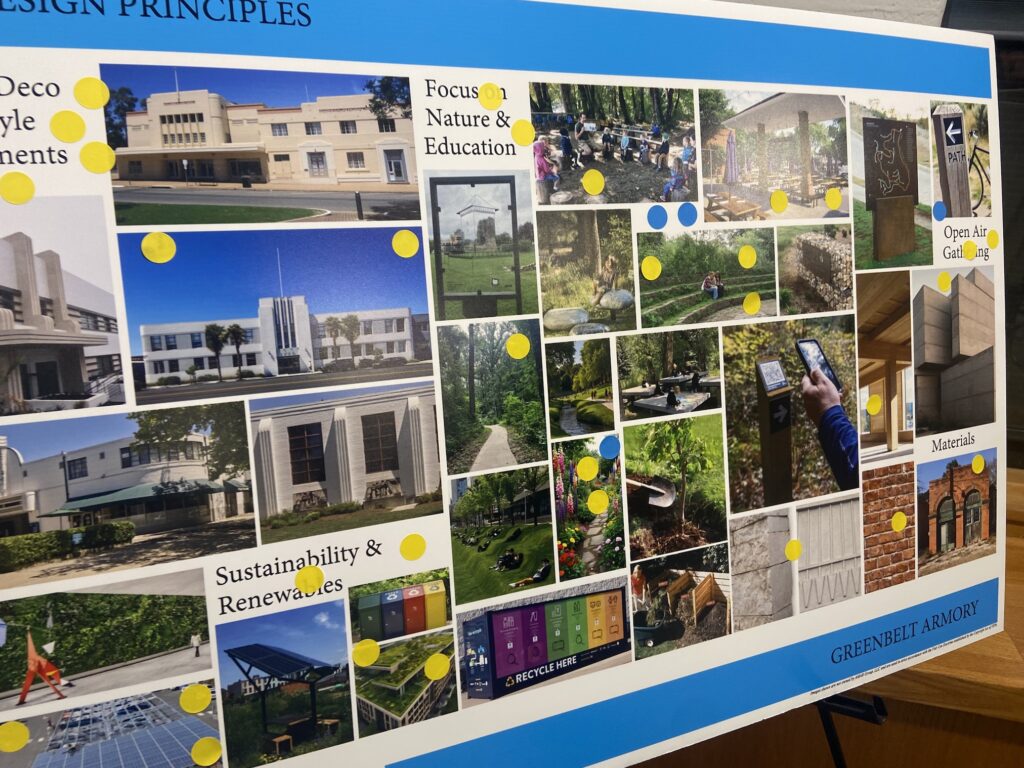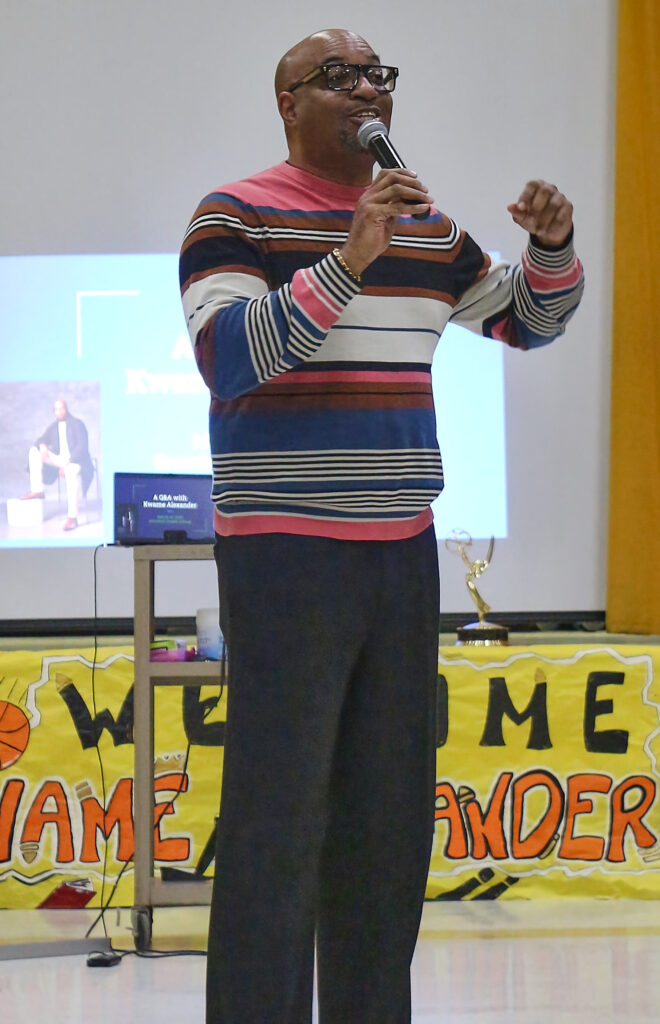In a spirited display of community and teamwork, Greenbelters once again took to the waters of the Anacostia River for the Bladensburg Races. This year, two boats ‒ Oar the Rainbow and Erg, Not Again ‒ were crewed and led entirely by Greenbelters.
Hosted by the Washington Rowing School (WRS) on Tuesday, August 27, this year’s regatta featured five boats crewed by D.C.-area rowers. Trey Sherard of Anacostia Riverkeeper provided invaluable pre-race information on the ongoing efforts to protect and improve the health of the Anacostia River. His insights highlighted the significant strides made since the Styrofoam ban of 2016, which dramatically reduced the amount of Styrofoam found in the river (it was once the number one pollutant).
Similarly, the recent plastic bag ban has had a profound impact, with plastic bags no longer ranking among the top 10 items collected during river cleanups. As Sherard explained, “The success of these bans shows how powerful policy can be in protecting our waterways. Now, it’s crucial that Marylanders advocate for the next step, a bottle bill.”
Currently, 60 percent of the litter collected by weight consists of plastic bottles, and on land, drink containers make up 50 percent of all litter, including aluminum, glass and plastic bottles. For those inspired to take action, the Anacostia Riverkeeper website features dropdown menus where residents can learn more about the organization and how to get involved. Additionally, several cleanups are planned in the coming months, offering a hands-on opportunity to contribute to the river’s health.
The rowing school, which sponsors this annual community challenge, has set a strong example with their no single-use water bottle policy, ensuring that their rowers stay hydrated while minimizing environmental impact.
This year’s Greenbelt crews included two young rowers, Henry Turner and Sam Winternitz (both 12), who each expressed their enthusiasm for the sport and the environment. Turner shared, “I love rowing because each rower has to move together like segments of a centipede. Each rower has to trust the others in order to move as one.”
Glenn Needham, who crewed with (and made the team bandanas for) Erg, Not Again, said, “I’ve always wanted to try rowing, but never had access to the sport. I took a Learn to Scull class at Washington Rowing School and found out about the community challenge; one month later I jumped in a boat with eight other Greenbelters and gave it all I had. What a great challenge!”
As the crews paddled their way down the Anacostia, they embodied the spirit of community ‒ working together not only to achieve their rowing goals but also to contribute to the ongoing efforts to protect the local environment. Neither of the Greenbelt teams made it to the third-round championship race, but they had tons of fun.
For both seasoned rowers or someone looking to make a difference, there are plenty of ways to get involved. Join a cleanup, advocate for environmental policies or even pick up a pair of oars ‒ every bit counts. As Coach Cindy Cole, a WRS founder, encouraged one rower, “You are more capable than you give yourself credit for!”
Amy Knesel is one of the Greenbelt rowers.
